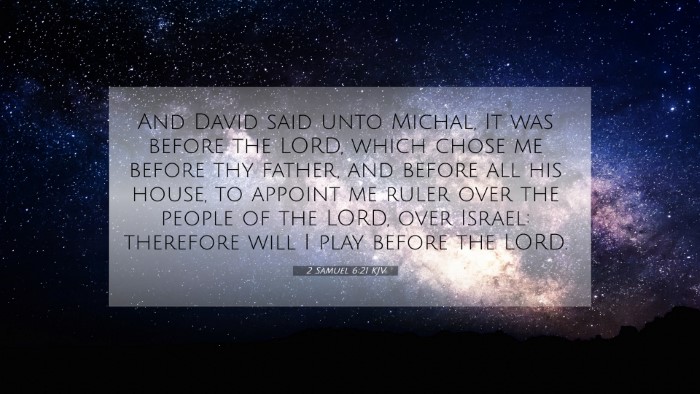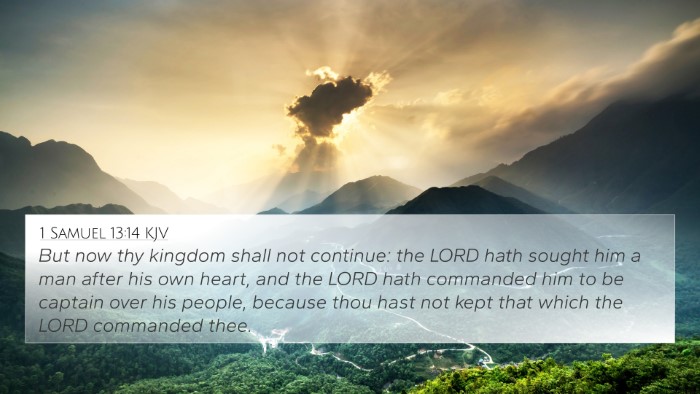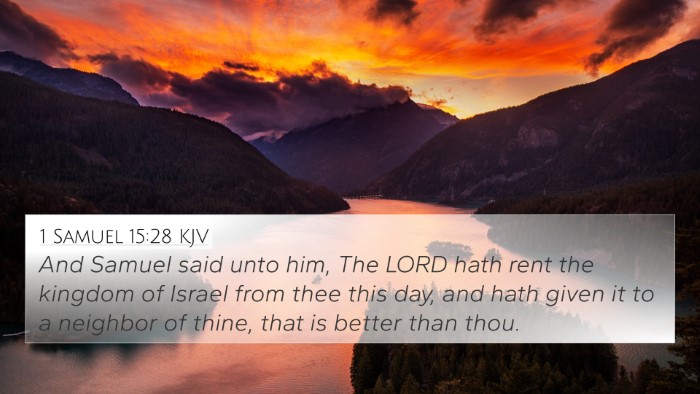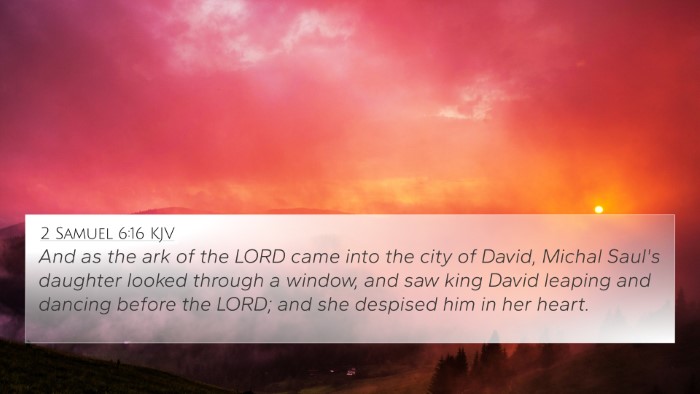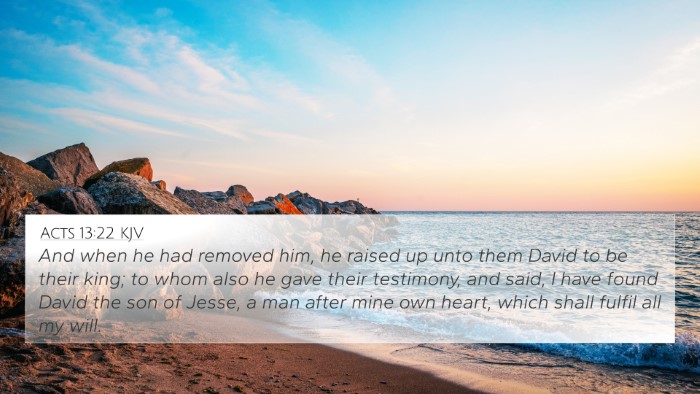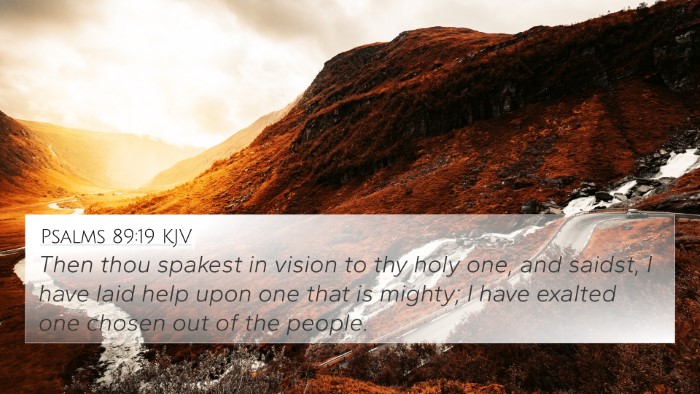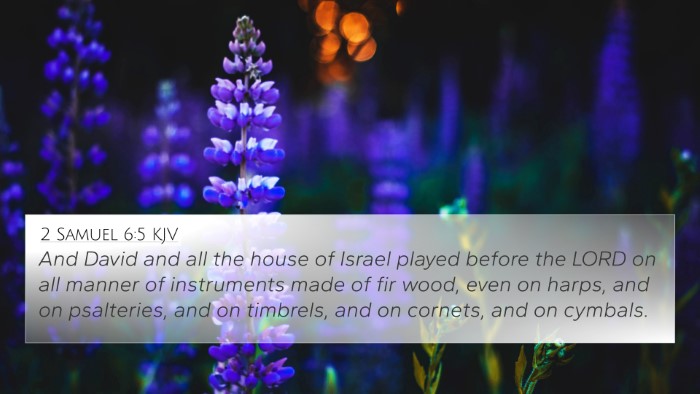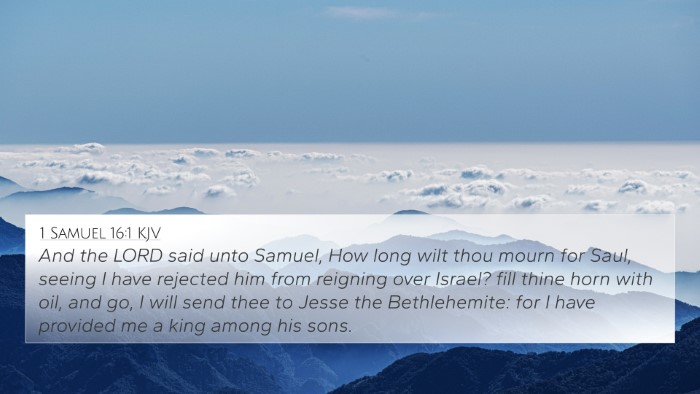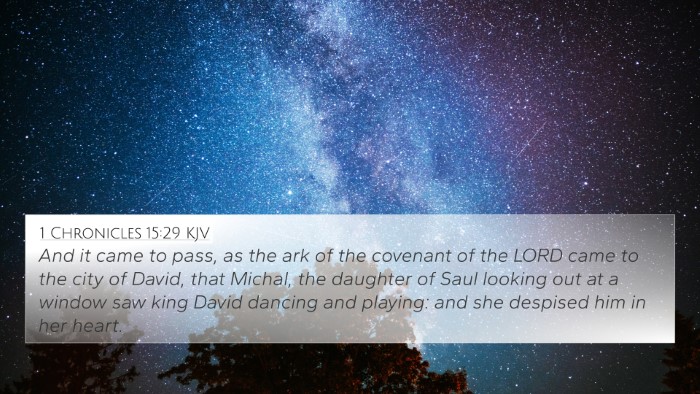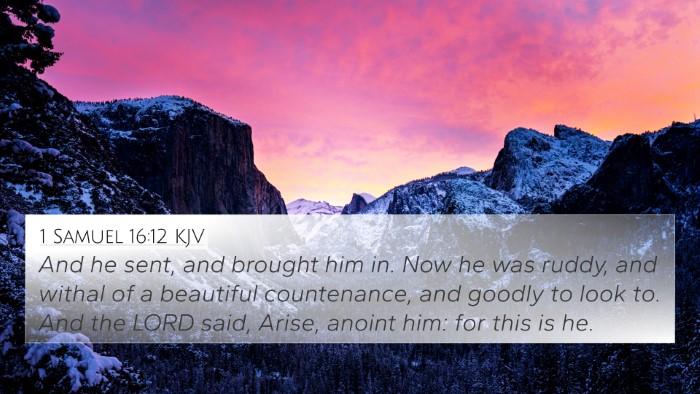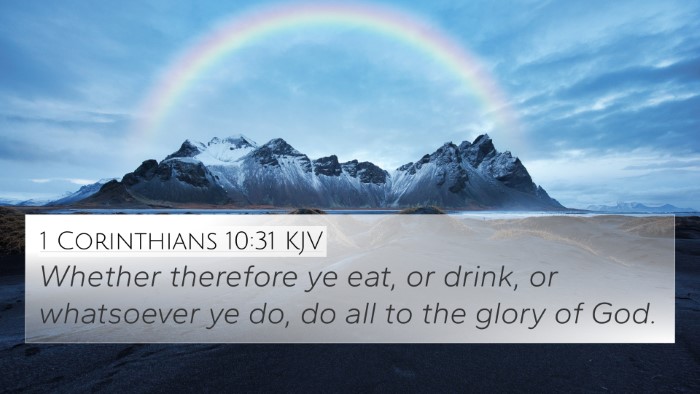Understanding 2 Samuel 6:21
Bible Verse: "And David said unto Michal, It was before the Lord, which chose me before thy father, and before all his house, to appoint me ruler over the people of the Lord, over Israel: therefore will I play before the Lord." (2 Samuel 6:21)
Summary of Meaning
This verse illustrates a key moment in King David's life where he defends his actions of worship and celebration before the Lord. After bringing the Ark of the Covenant to Jerusalem, David expresses that his actions were motivated by his relationship with God, not merely by his personal inclination or societal expectations. His statement highlights the divine choice of his leadership and the purpose of his worship.
Contextual Background
- David's emotional expression of worship after a significant achievement.
- The significance of the Ark of the Covenant as a symbol of God's presence among His people.
- The contrast between David's joy in serving God and Michal's disdain as she perceived it as undignified.
Commentary Insights
Insights from various biblical commentators enhance our understanding of this verse:
- Matthew Henry: He emphasizes that David's response to Michal demonstrates his understanding of God's selection of him over Saul's house. David places priority on his relationship with the Lord above the opinions of others.
- Albert Barnes: Barnes notes that the boldness in David's worship serves as a reminder that true worship is an expression of humility and reverence before God. It is more important than maintaining a facade of dignity.
- Adam Clarke: Clarke points out that David’s declaration not only counters Michal’s criticism but also affirms God's sovereignty in choosing leaders. He underlines that spiritual worship often defies social norms.
Cross References
Several other Bible verses resonate with the themes in 2 Samuel 6:21:
- 1 Samuel 13:14: This verse highlights God's choice of David over Saul.
- Psalms 29:2: This verse calls us to worship the Lord in the beauty of holiness, encapsulating David's intent.
- 1 Chronicles 15:29: This recounts the Ark’s transport and Michal’s reaction, emphasizing the tension between divine worship and human expectations.
- Philippians 3:7-8: Paul expresses the idea that all earthly accolades are worthless compared to knowing Christ, paralleling David's priorities.
- Luke 10:20: Jesus teaches about rejoicing in God, similar to David’s joy in the Lord.
- Romans 12:1: This verse also encourages believers to present themselves as living sacrifices, a form of worship akin to what David exhibits.
- Hebrews 11:6: This underlines the importance of faith and how it pleases God, aligning with David’s expressions of faith through worship.
Thematic Connections
This verse can be linked to thematic explorations across the Scriptures:
- The celebration of God’s presence.
- Contrast between human perception and divine approval.
- The role of leadership in representing God’s will.
- The significance of personal worship versus societal expectations.
Practical Applications
For those studying this verse in depth, consider the following:
- Application in Worship: Emphasize the importance of authenticity in worship practices.
- Leadership Reflection: Reflect on how leaders should align their lives to honor God's selection and purpose.
- Overcoming Criticism: Learn how to remain steadfast in worship despite negative perceptions from others.
Conclusion
In conclusion, 2 Samuel 6:21 serves as a vital reminder of the heart behind worship. David's words capture the essence of dedicating oneself to God, independent of human judgment. The rich context and connections to other scriptures further enhance its significance, encouraging believers to foster a sincere relationship with the Divine.
Further Study Resources
For those interested in delving deeper into cross-referencing Biblical texts or comparative Bible verse analysis, consider utilizing a Bible concordance or a comprehensive Bible cross-reference guide. These tools can assist in identifying connections between Bible verses and exploring how various themes are woven throughout Scripture.


